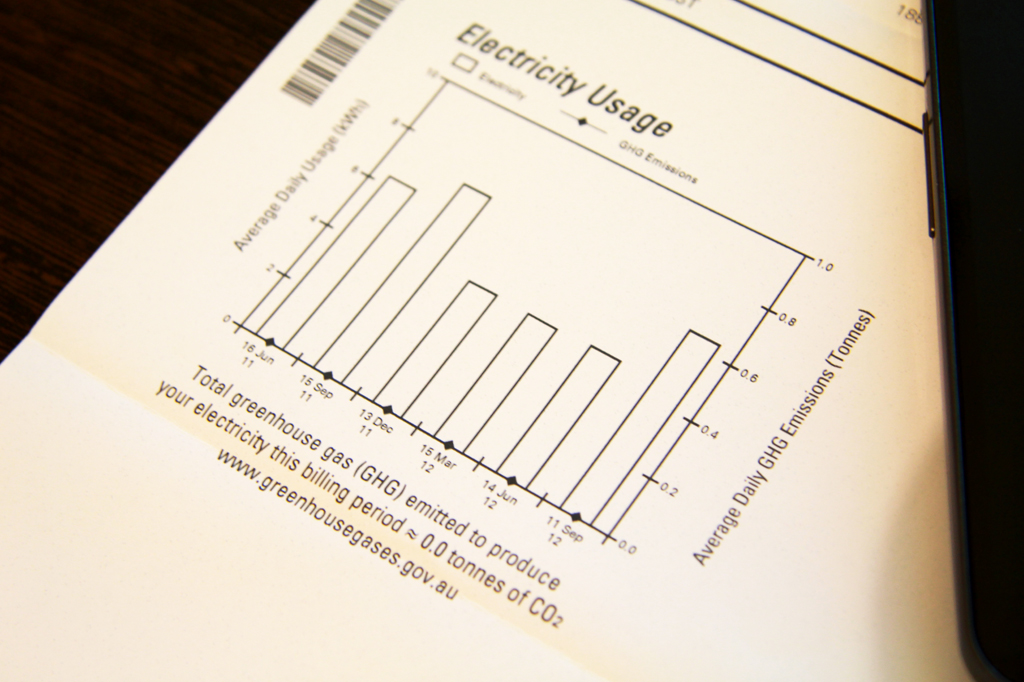A wise woman once told me she reviewed virtually all of the families major expenses every year in January. Things like car insurance, house insurance, health insurance, gas prices (as in natural gas not petrol), power prices, internet plans, mobile phone plans and so on. Things that you normally just pay and rarely look at otherwise.
The entire point of the discussion was how looking at these things can often save you hundreds of dollars which many finance websites point out quite regularly. The website I Will Teach You To Be Rich has many great scripts on how to negotiate your way down to the best deals and I’d greatly recommend reading into it if you haven’t already.
It is also because of this discussion that I now have a recurring Google Calendar event that goes off every year telling me to look into getting a better deal with all these things. See if there’s cheaper car insurance with other companies, do a quick comparison between power provider companies and so on.

Every single time I’ve done this, year after year without fail it’s always saved us hundreds of dollars and it really doesn’t take too long now with the Internet. However it also got me thinking, if I routinely review all these “big expenses”… why doesn’t anyone ever routinely review that giant Elephant slowly walking through the room (your mortgage)?
If you’ve been reading Mutilate The Mortgage for a while now you’ll remember one of my favourite pieces, Putting Your Mortgage In Context. If you haven’t read it yet feel free to do it now, don’t worry, I’ll wait :-)
Now that we’re on the same page, you’ll know that your mortgage is THE biggest thing in your life and if you are worrying about anything, you should be worrying about your mortgage FIRST. It outweighs all other expenses in terms of putting effort in and saving money. With even an hour of poking around and following some of Mutilate The Mortgage tips you can save hundreds of thousands of dollar, try doing that by swapping car insurance companies!
So given that you can save so much, I am putting forth the suggestion that from now on, you should review your mortgage every 6 months. Create a calendar event, put it in your “to-do list”, whatever it takes, but make sure you spend at least an hour or two having a look over how everything is setup and whether or not you can tweak it to do better every 6 months.
What’s In A Review

Reviewing your mortgage doesn’t have to be a tiresome affair and as you do it each 6 months you will get quicker and quicker slowly building up your Mutilation Kung Fu powers. For those that are aspiring newbies though allow me to let you in on a few tips I’ve learnt over the years.
1. You don’t need to change banks to save money
When most people think of “reviewing” their mortgage switching banks comes straight to mind. Bank A has a lower interest rate than Bank B… so to save money I’ll have to switch banks. However there are plenty of great things you can do to shave heaps of money off your loan without moving anywhere. You see all banks have multiple loan types.
Some are for people who want credit cards and offset accounts or wealth packages and others are the bare bones type. You should be on the bare bones type but if you’re not, you can often cut down how long you have to pay off your mortgage by a fair bit simply by switching loan types. Most of the time banks won’t charge you for this either and it can even simultaneously get rid of other fees too!
2. Make sure you’re getting the LOWEST interest rate you can
Normally when you sign up to a loan you’re too busy worrying about all the other things as more often than not you just bought a house. There’s the settlement day with all the contracts and section 32’s or whether you’re getting the best price for the house and if you should have put in a lower bid.
There’s the excitement around getting a new house and when you’ll move in etc etc. So negotiating with the bank over the specific interest rate and other minute terms usually takes a backseat and then gets forgotten about. The truth is, even the major four banks will go far less than what their “standard variable interest rate” is set at… you just have to ask and negotiate to get it. For instance, CBA home loan rates range from 6.60% p.a. to 5.90% p.a. at the time I write this post.
Even if you must stay on the more expensive Standard Variable Rate home loan for some reason, you can still negotiate a far lower interest rate than that 6.60% p.a. Do keep in mind though that negotiation skills are a personal thing and that you may be crap/alright/great at. Your friend might be able to sweet talk his way out of punching a bouncer in the face at the local bar (in which case you should get him on that phone) but it doesn’t mean you’ll be able to do it too.
Also remember sometimes the person you talk to might just be having a bad day or is really strict and so denies you an interest rate decrease, this doesn’t mean you should give up. Call back in a couple of days and try again with a different rep.
3. Keep an eye out for new products at your bank
Whilst this is similar to number 1, sometimes there are new, better products that banks offer to new customers. They usually don’t tell existing customers (as they’ve already got your business) and so if you don’t look or ask specifically you have no idea on what you’re missing out on.
Also be careful as sometimes the best offers aren’t even advertised, you have to directly ask an employee about “any new or great loans” before getting the inside scoop. Whilst I haven’t seen this too often it can happen.
4. Know how much it will cost to switch banks and see what your options are
If you’ve exhausted all your options within the bank and still feel that you can do better it can be time to change. The best thing I’ve found to help make this decision is knowing exactly how much it will cost you TO change banks.
Normally a new bank will charge you establishment fees, your existing bank may charge you exit fees if your loan is older and of course the government steps in and takes their share of fees at $210 for Land Titles Office paperwork.
Given the new bank will likely have the establishment fees on it’s website, all that’s normally needed to get the final piece of the puzzle is to call up your current bank and ask them how much they’d charge you if you changed banks.
After you’ve got these three bits of information you can calculate your changing banks cost and then start comparing that to the amount of interest you’ll save by going somewhere else with a lower interest rate. I’d recommend a quick spreadsheet for this personally as it makes for quick comparison and comes in handy later on if you want to compare other banks the next time you do a review.
You’ll Always Save Something
In all the times I’ve put in the effort to review some expense I’ve ALWAYS ended up being better off. Always. I think that’s a pretty good track record and I can only imagine how much money we’ve saved over even our short time living in our home. $500 off car insurances here… 0.20% off our mortgage rate there… $700 off our home insurance as well… compounded over your life it comes to a massive amount of cash and is a great habit to get into.
P.S. Don’t forget to set that calendar event reminder!
The benefits include: 1) How to pay off your mortgage faster than 99% of people with one hour a month of work 2) How to get rid of your debt and have the freedom to spend money on the things you love, guilt free 3) Clear outline of how to setup your expenses, mortgage and general finance 4) How offset accounts work and how to get the same result without being gouged by the big banks 5) How to cut through the crap and focus on the things that truly matter when taking down a mortgage 6) How to adjust the strategy so it works for you, even if you have kids, even if you only have one income 7) How to do all of these things and maintain a normal social life (and never be cheap).


